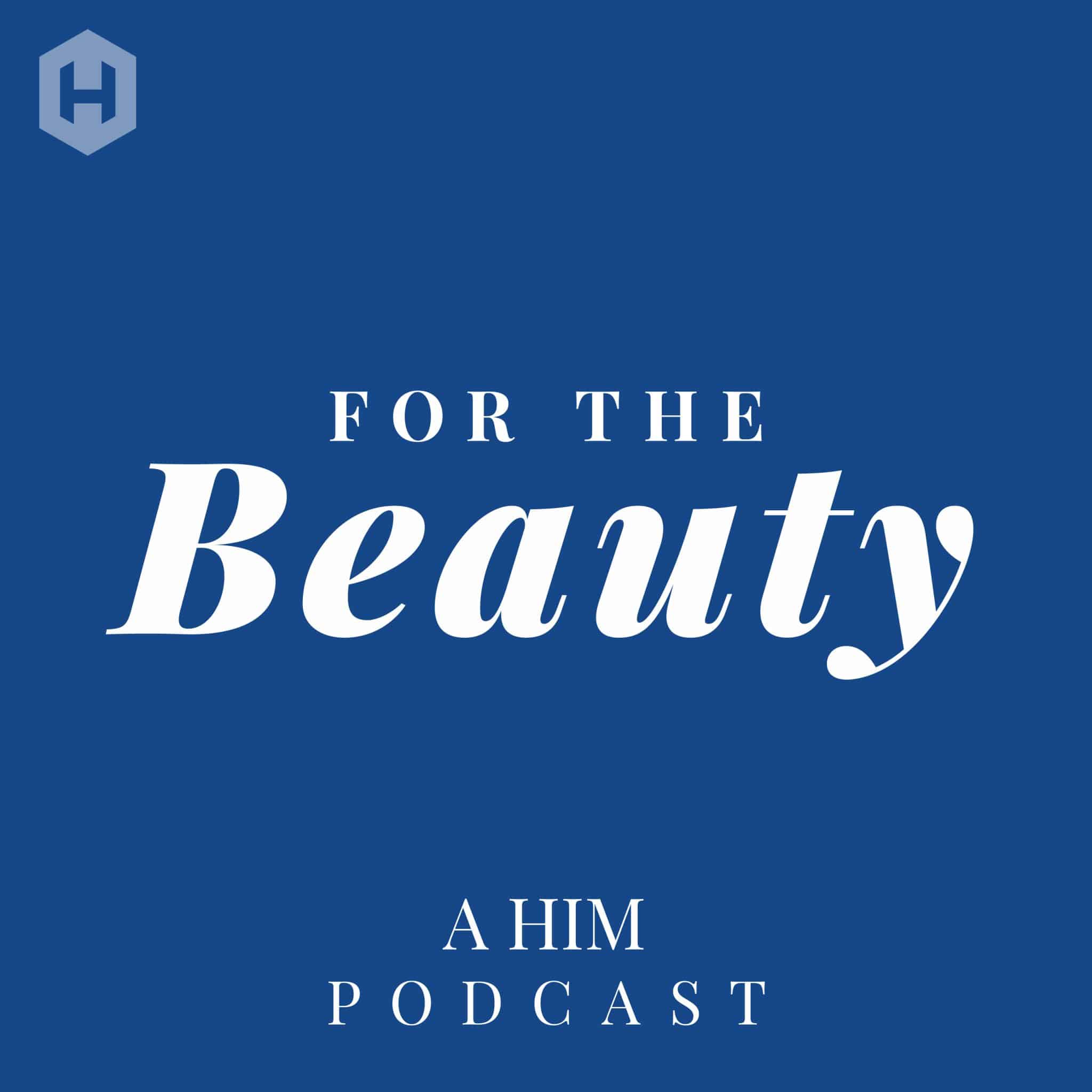We want intimacy with God, but our fear and pride keep us distant. Christ shows us how to abide with him in humility.
Read, watch, and listen to this message. Listen on Spotify here and Apple Podcasts here.
The phrase “abiding in Christ” can be confusing. While its meaning can go deep, the basic meaning is simple:
Abiding in Christ means staying connected to Christ and not leaving.
And Jesus is clear on how we can abide: In John 15:10 he says, “If you obey my commands, you will abide in my love” (NIV).
“Abiding in Christ” is the first of five spheres of discipleship, as I describe with my coauthor Jim Putman in The Revolutionary Disciple.
The five spheres are:
- Sphere 1: Abiding in Christ
- Sphere 2: The Church Sphere
- Sphere 3: The Home Sphere
- Sphere 4: The World Sphere
- Sphere 5: The Spiritual Realm
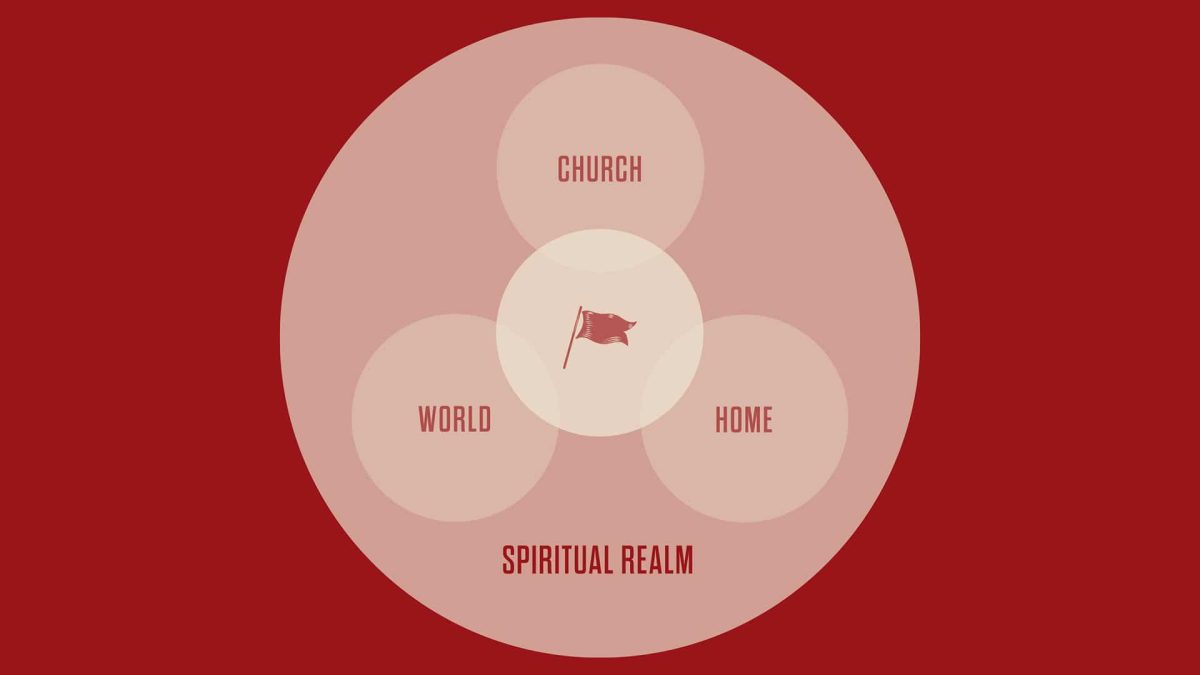
As we abide or remain in Christ, we don’t just want to stay and obey. We want more. As I’ve examined my life and listened to others in the church—I keep hearing: “I want more intimacy with God.”
So if we want this and God offers it, then why don’t we experience it?
This post seeks to answer that question and simply to say this:
Humility leads to intimacy with God.
Three key barriers keep us from this humility that leads to intimacy with God.
First Barrier: Fear
If you’re like me, I sometimes get afraid of what God’s going to say to me if I spend time alone with him. What will God ask us to do if we make space for him? We fear he’ll find the skeletons in our closet—the ones we know about and the ones we don’t know about.
But when this happens, we forget that he’s good.
The truth is we should not be afraid of what God will do if we draw near but what will happen if we don’t allow him into those vulnerable places to deal with our skeletons. We can’t keep the door closed on our secrets; they will come out one way or another.
Christ offers freedom from fear of intimacy.
Second Barrier: Feeling Stuck
As we seek intimacy with God, we can easily feel stuck.
Often if we take a step back and look at our discipleship journey, we can see how we started strong with obeying the call to follow Christ and understanding the Great Commission to make disciples of Christ.
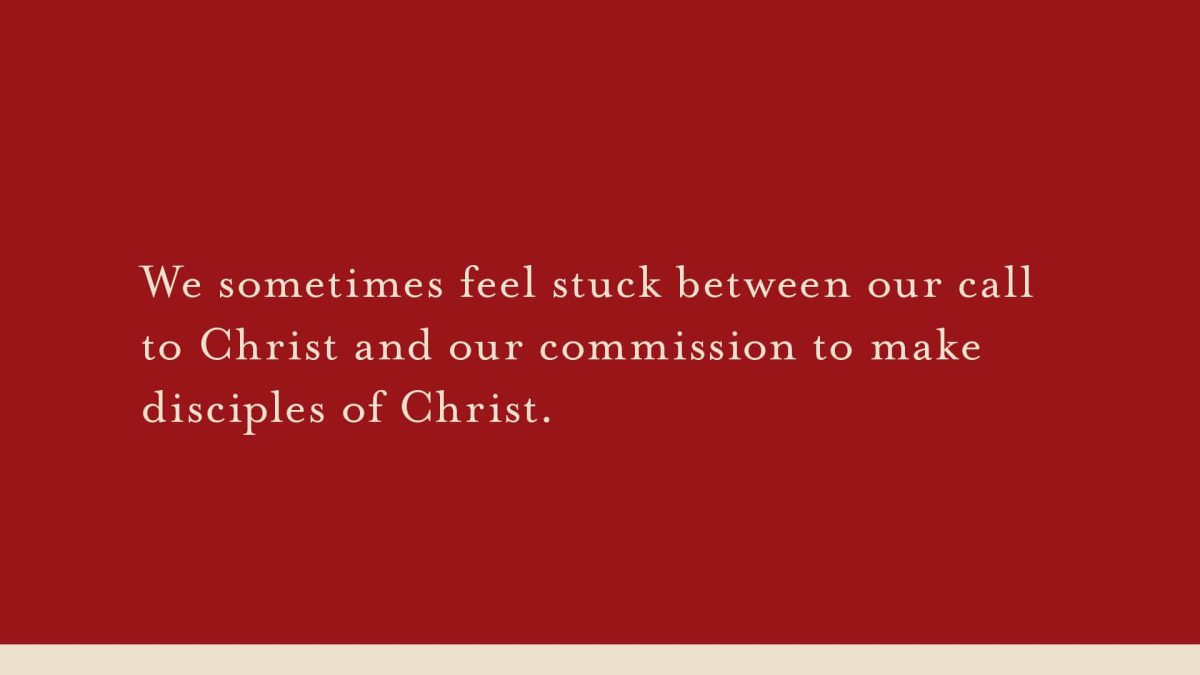
We feel like we’re not making progress, so we stay put.
But Christ offers a way to get unstuck, which I unpack below.
Third Barrier: Pride
Pride operates below the surface of our fear and feeling stuck. This pride comes from a mixture of our confusion about authority, submission, and humility.
Forgetting Christ’s authority. We can easily read the Great Commission of Matthew 28:18–20 and skip straight to the “Therefore, go and make disciples” and miss the first line, where Jesus said, “All authority in heaven and on earth has been given to me.”
We can easily forget Jesus is not just a teacher but also king of the universe!
My three-year-old daughter, Emma, loves stories, so she said before nap time recently, “Tell me a story about Jesus.” So I told Emma the story of Saul on the Damascus road, where Jesus spoke to Saul.
I finished the short version of that story, and she said, “Tell me the rest of the story.”
So I said Paul went throughout the whole world at the time and shared the gospel. I concluded by saying, “Students of Jesus popped up everywhere. Did you know Jesus was a teacher?”
She said, “No, he’s king.”
It was a good reminder that Jesus isn’t just a teacher. He’s also king of the universe.
Forgetting we’re called to submit to Christ in every area of life. A disciple is essentially a learner. This means a disciple by nature submits to a teacher and follows their instructions.
We must be humble in order to submit to another person.
And we’re not to submit just at baptism or in one area of life. We’re to submit to Christ and to his delegated authorities in every area of life. This encompasses what we call the five spheres of discipleship: abiding in Christ, in the church sphere, in the home sphere, in the world sphere—where we live, work, and play—and in the spiritual realm.
It’s like allowing someone full access to your computer’s hard drive or every room in your house—nothing hidden.
Forgetting that Christ’s authority and our submission requires our humility. I can say of all the sins I’ve struggled with in my life, pride has been the most insidious and sneakiest one. Pride has been a major issue in my life—one of my core weaknesses.
So as someone who’s struggled with this but is on the path of recovery, I can say that while God has shown me my sin, he’s also shown me the way out.
Over the last twenty years of my life, I’ve thought deeply about the wreckage that pride has caused in my life and in the lives of others, and I’m convinced of this:
What’s missing for many disciples today that keeps us from intimacy with God is true, Christlike humility before God.
We see this call to be humble through the examples of Jesus and Paul.
I believe one of the major keys to abiding humbly in Christ is found in Matthew 11, which is about the humility of Christ himself. Matthew 11 comes in between the call to follow Christ in Matthew 4 and the commission to make disciples of Christ in Matthew 28.
This passage uniquely reveals Jesus’ heart of humility, and it unlocks the key to what made him truly revolutionary.
The Example of Jesus
The book is called The Revolutionary Disciple. People on the right and left are talking about a revolution and rightly so, but Jesus’ humble way of life is the only way toward a lasting revolution.
So the book’s title is first talking about Jesus.
Then, we become revolutionaries because of him and our surrendering to him in every area of life.
Jesus, a disciple?
It’s strange to think about Jesus as a disciple, but he was one. We know this because Scripture says Jesus “learned obedience from what he suffered” (Heb. 5:8).
Jesus also says in John 15:15, “Everything that I learned from my Father I have made known to you.”
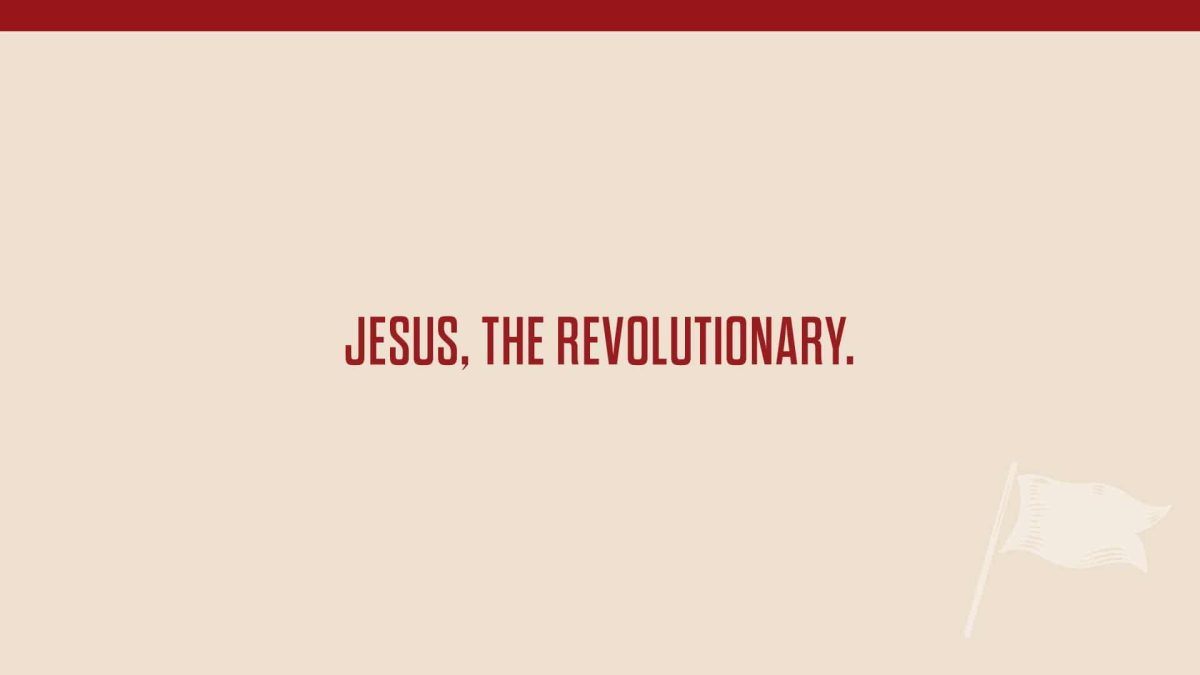
Jesus wasn’t just a disciple; he was a revolutionary—the revolutionary.
The paradox is this:
Jesus overturned the world through love and conversion, not through force and coercion.
Dallas Willard says in The Allure of Gentleness that Jesus was alluring to people not in spite of his gentleness but because of it. This is something I’m seeing more and more:
Gentleness changes the whole dynamics of a relationship.
Here’s the beautiful thing: Jesus invites us to learn this kind of humility and gentleness from him by walking with him through life. In Matthew 11:28–30, he says:
Come to me, all you who are weary and burdened, and I will give you rest. Take my yoke upon you and learn from me, for I am gentle and humble in heart, and you will find rest for your souls. For my yoke is easy and my burden is light.
Let’s spend some time in this passage because it’s so rich.
Understanding Matthew 11:28–30
- Jesus says, “Come to me,” which is an invitation simply to be with him.
This is a surprising offer from the king of the universe to be in relationship with him!
This “with” part of discipleship matters so much for us as we make disciples and disciple our children too.
Case in point, my daughter, Emma, has been singing a Scripture song called “Be Strong and Courageous” by Seeds Family Worship, which is based on Joshua 1:9: “Be strong and courageous. Do not be terrified; do not be discouraged, for the Lord your God will be with you wherever you go.”
Recently, we were at a neighborhood family movie night, and before the movie started, Emma saw a group of kids blowing bubbles. So she started walking toward them.
Then, she saw how wild the kids were acting with the bubbles. From about ten feet apart, we locked eyes about the issue, and I told her, “Be strong and courageous.” She then came back to me, held out her hand, and said, “Come with me.”
Christ offers us “come-with-me” discipleship.
Come-with-me discipleship means a relationship with Christ and the church.
Nothing kills relationships like pride.
In fact, I believe the burden Christ describes in this passage has to do with pride.
- Jesus’ invitation to come is for all those who are burdened.
I’m convinced, as I’ve studied the immediate context of Matthew 11:28–30, that the burden is not just the burdens of life in general but the specific burden of unrepentance due to pride.
I believe this because he has just rebuked people for not believing in him after he performed miracles: “Woe to you, Chorazin! Woe to you, Bethsaida! If the miracles that were performed in you had been performed in Tyre and Sidon, they would have repented long ago in sackcloth and ashes” (Matt. 11:21). It’s in that context that he invites all who are weary and burdened to come to him.
Pride says, “I’m okay on my own. I don’t need help. I don’t need relationships.”
I’ve seen the burden people carry when they live in pride and do not turn to Christ in an abiding relationship with Christ and his church because I’ve been there. And my heart goes out to them.
Pride not only distances us from God, but it divides churches, splits up families, causes us to get fired from our job. And the worst: it isolates us, making us vulnerable to spiritual attack.
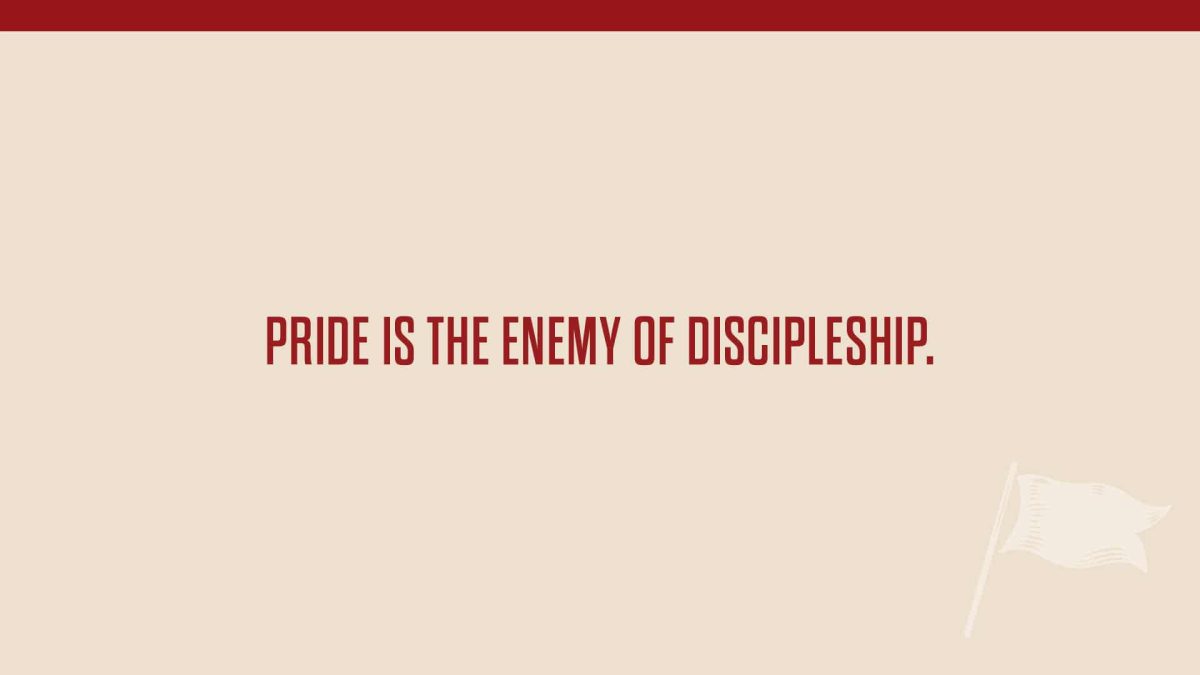
When Satan wants to lure us into self-destruction, he’s a one trick pony: he works us from the inside out by encouraging an overinflated ego in us through the idolatry of self with our seething yet subtle pride.
Pride says, “I don’t need anything. I’ve got it.”
But we all need help, guidance, and correction—that’s what makes us disciples.
Why do we struggle to grow in intimacy with Christ? Because we struggle at the deepest level with subtle forms of pride.
Discipleship includes both fellowship with the Son and the pruning of the Father.
We often want the teaching and training without the correcting and rebuking. Yet Jesus says, “My Father is the gardener. He cuts off every branch in me that bears no fruit, while every branch that does bear fruit he prunes so that it will be even more fruitful” (John 15:1–2).
We forget God’s good and his pruning leads to his producing fruit in our lives.
We cannot be close with God until we accept the pruning of God.
This comes only by humbly submitting ourselves to his way over ours in every area of life.
And while independence is a great character trait, rugged individualism destroys our intimacy with God.
But Jesus shows us the way of humility when he says, “Come to me … take my yoke upon you and learn from me.”
- Jesus shows us humility of heart.
He says, “Learn from me for I am gentle and humble in heart.”
Jesus was revolutionary because he was humble, but his humility was not how the world defines it. He maintained humility even with his great authority. And we can be revolutionary as we learn humility from him. That’s the core message of The Revolutionary Disciple.
How do we do this?
We unpack this in the book, but I want to emphasize in this post the importance of this first sphere. We must first be in a close, humble relationship with Christ himself.
We must learn not just the commands of Jesus but also the heart of Jesus.
Then, we can effectively walk humbly through the other spheres, and discipleship will not be burdensome—but a delight.
Paul’s Pride and God’s Prodding
I thought a lot about Acts 26:14 as I prepared for the sermon after which this post was adapted. It’s the words of Jesus to Paul on the Damascus road.
Luke replays three synoptic versions of this story in the book of Acts (in Acts 9, 22, and 26), but Acts 26 contains a detail that is absent from the other versions.
For context, it says that Paul and his friends saw a great light from heaven, brighter than the sun, and after they fell to the ground, Jesus said, “Saul, Saul, why do you persecute me?”
Then, Jesus said:
“It is hard for you to kick against the goads.”
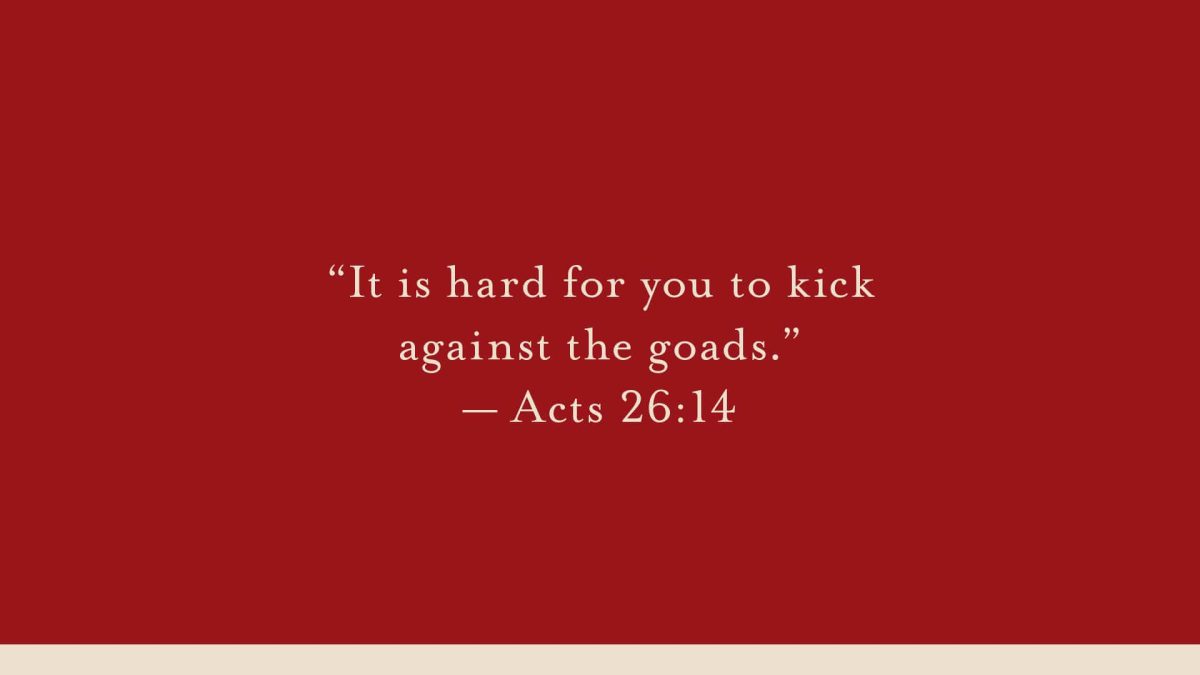
A “goad” is a stick with a sharp end that was used to prod oxen and other animals to move one way or another—to guide them. To “kick against the goads” was to resist God’s prodding.
Jesus said essentially, “It’s hard for you, isn’t it? That’s painful.”
So to those of you struggling with pride in one or more areas of your life, let me extend that observation to you because I think it can shed light on the reality of our pride: It’s hard for you, isn’t it? I know it has been for me.
Our Pride and God’s Prodding
In which area of your life are you currently resisting God? Let me tell you the good news: God wants to give you rest and intimacy with him. But you must stop going your own way and surrender to God’s way.
Here’s a truth you can hang your hat on:
The pain of kicking against the goads is greater than the pain of growth.
And you can take these words from James 4:6–8 to the bank:
“‘God opposes the proud but shows favor to the humble.’ Submit yourselves, then, to God. Resist the devil, and he will flee from you. Come near to God and he will come near to you.”
As you consider our message in The Revolutionary Disciple about Jesus’ legacy in our lives, let me remind you of the invitation he issues to all of us who are wearied by going our own way:
Come to me all who are weary and burdened, and I will give you rest. Take my yoke upon you and learn from me, for I am gentle and humble in heart, and you will find rest for your souls. For my yoke is easy and my burden is light.
Subscribe to HIM Publications here to get long-form discipleship content delivered to your inbox each week.
